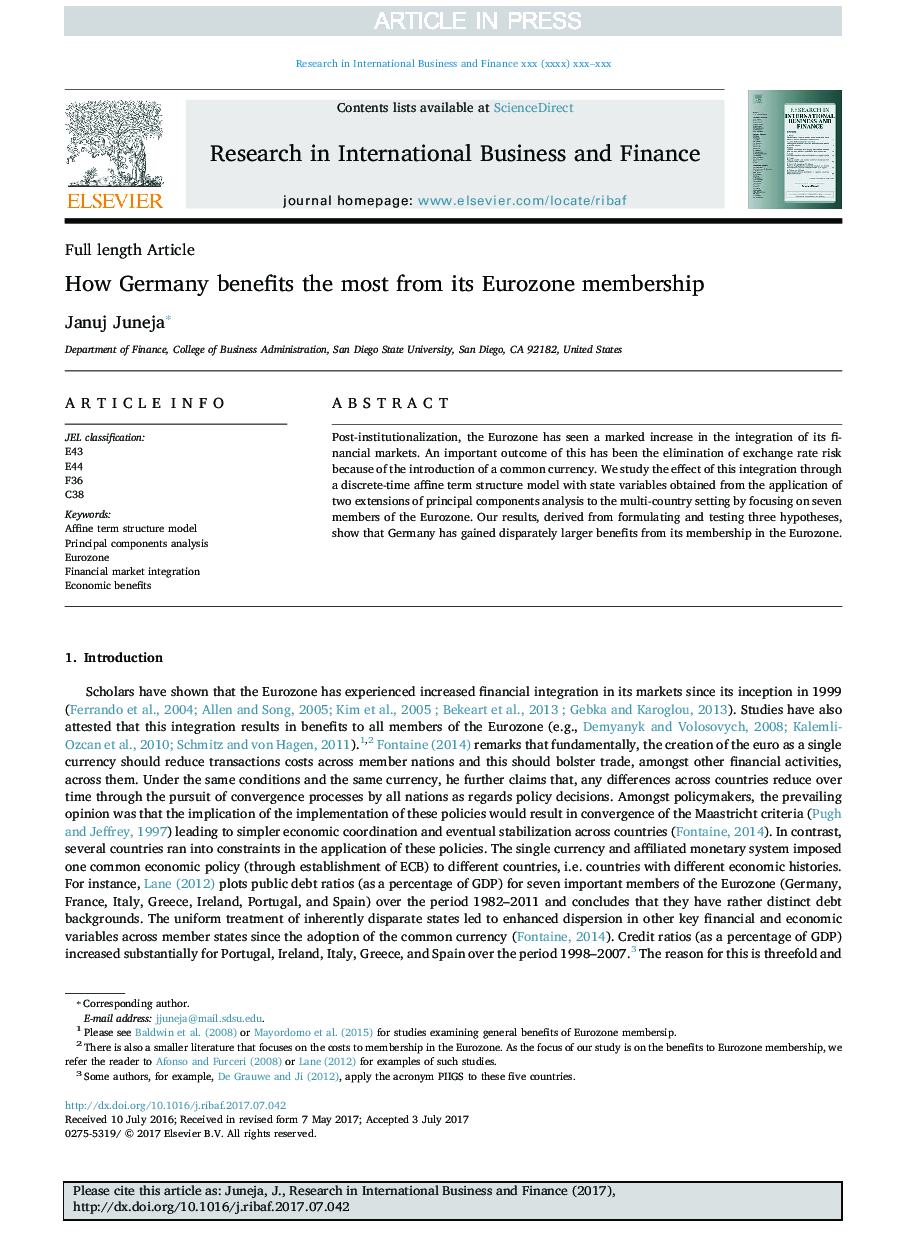| Article ID | Journal | Published Year | Pages | File Type |
|---|---|---|---|---|
| 5107328 | Research in International Business and Finance | 2017 | 15 Pages |
Abstract
Post-institutionalization, the Eurozone has seen a marked increase in the integration of its financial markets. An important outcome of this has been the elimination of exchange rate risk because of the introduction of a common currency. We study the effect of this integration through a discrete-time affine term structure model with state variables obtained from the application of two extensions of principal components analysis to the multi-country setting by focusing on seven members of the Eurozone. Our results, derived from formulating and testing three hypotheses, show that Germany has gained disparately larger benefits from its membership in the Eurozone.
Keywords
Related Topics
Social Sciences and Humanities
Business, Management and Accounting
Business and International Management
Authors
Januj Juneja,
